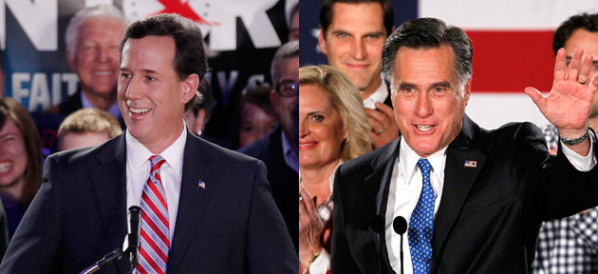 4 Terms
4 TermsHome > Terms > English (EN) > track and field
track and field
American athletes in track-and-field sports have been able to maintain their dominance as a result of the emphasis colleges and universities place on the sport. Backed by the NCAA and an elaborate system of sports scholarships, colleges and universities have been able to offer opportunities to athletes to compensate for the sport’s amateur status (a status that no longer remains). The significance of the college-based system on the lives of athletes has been explored in numerous movies from Personal Best (1982) to Without Limits (1998). The pressure to succeed created by this system has given rise to the widespread use of performance-enhancing drugs.
The widespread attention given to track and field derived in large part from its association with the Olympic movement, which provided a forum for the expression of nationalist sentiments. As such, the efforts of athletes competing against countries with which the United States is in competition (economically and ideologically) have often taken on considerable significance. During the Cold War, therefore, considerable attention would be paid to Americans competing against athletes from the Soviet Union and East Germany. Owing to the prominence of African American athletes in many track-and-field events, the possibilities of harnessing patriotic fervor to racial advancement were commonly acknowledged. Jesse Owens’ success at the 1936 Berlin Olympics, winning four gold medals in front of a furious Hitler (who would have been more furious still had the Americans included their Jewish sprinters on their relay team), was just one example of this. Owens (1913–80) became a nationally recognized and celebrated athlete and, along with Joe Louis, helped pave the way for Jackie Robinson’s desegregation of baseball.
Wilma Rudolph (1940–84), the first American to win three gold medals in the 1960 Rome Olympics (100m, 200m and 400m relay), continued this tradition. Her achievement, a triumph also over childhood polio, made her one of the most celebrated female athletes of all time. Her celebrity also helped to begin the process of breaking down gender barriers in previously all-male track-and-field events prior to the passage of Title IX.
The identification between athletes and their country opening up opportunities to black athletes that might otherwise have been closed, remained in place at least until the end of the Cold War. President Carter’s boycott of the 1980 Moscow Olympics, in the aftermath of the Soviet invasion of Afghanistan, was considered by many a major blow to African American athletes, not merely on the grounds of their pursuit of gold medals. But African American track-and-field athletes also used this spotlight to make comments about racial conditions in the United States. Tommie Smith and John Carlos at the 1968 Mexico Olympics raised their fists in the Black Power salute during the medal ceremony to make the point that while they were representing their country, that country discriminated against them (both were suspended from the US team).
The 1968 Olympics also witnessed major trackand-field landmarks: Bob Beamon won the gold medal in the long jump with a world record (29ft, 2½ in), shattering the old mark by nearly 2 feet (unlike most records, this one remained unbroken until 1991 when Mike Powell jumped 2 inches further); and Dick Fosbury fundamentally altered the high jump with his “Fosbury Flop.” Two other track-and-field stars deserve mention. Florence Griffith Joyner (1959–98), known as “FloJo,” was a triple gold medalist at the 1988 Seoul Olympics. She was recognized around the world for both her colorful and asymmetrical running outfits and her long, painted fingernails. Smashing the world records for the 100- and 200-meter runs in Seoul and also winning a gold medal in the 4×100 relay, she later served as cochairperson of President Clinton’s Council on Physical Fitness, before suffering a heart attack and dying in 1998. As with Rudolph before her, Griffith Joyner’s performances challenged assumptions about the relationship between sport and gender.
Carl Lewis (1961–) dominated track-and-field events throughout much of the 1980s and early 1990s. Unable to run in Moscow because of the boycott, Lewis amassed a record in sprints and long jump equaled by no other athlete. Widely regarded as the greatest track-and-field athlete of all time, he matched Jesse Owen’s record in 1984, won three medals in 1988 (two gold and one silver) and another two gold medals in 1992. At the 1991 World Championships in Tokyo he also set the world record for the 100m (9.86 seconds).
- Part of Speech: noun
- Synonym(s):
- Blossary:
- Industry/Domain: Culture
- Category: American culture
- Company: Routledge
- Product:
- Acronym-Abbreviation:
Other Languages:
Member comments
Terms in the News
Billy Morgan
Sports; Snowboarding
The British snowboarder Billy Morgan has landed the sport’s first ever 1800 quadruple cork. The rider, who represented Great Britain in the 2014 Winter Olympics in Sochi, was in Livigno, Italy, when he achieved the man-oeuvre. It involves flipping four times, while body also spins with five complete rotations on a sideways or downward-facing axis. The trick ...
Marzieh Afkham
Broadcasting & receiving; News
Marzieh Afkham, who is the country’s first foreign ministry spokeswoman, will head a mission in east Asia, the state news agency reported. It is not clear to which country she will be posted as her appointment has yet to be announced officially. Afkham will only be the second female ambassador Iran has had. Under the last shah’s rule, Mehrangiz Dolatshahi, a ...
Weekly Packet
Language; Online services; Slang; Internet
Weekly Packet or "Paquete Semanal" as it is known in Cuba is a term used by Cubans to describe the information that is gathered from the internet outside of Cuba and saved onto hard drives to be transported into Cuba itself. Weekly Packets are then sold to Cuban's without internet access, allowing them to obtain information just days - and sometimes hours - after it ...
Asian Infrastructure Investment Bank (AIIB)
Banking; Investment banking
The Asian Infrastructure Investment Bank (AIIB) is an international financial institution established to address the need in Asia for infrastructure development. According to the Asian Development Bank, Asia needs $800 billion each year for roads, ports, power plants or other infrastructure projects before 2020. Originally proposed by China in 2013, a signing ...
Spartan
Online services; Internet
Spartan is the codename given to the new Microsoft Windows 10 browser that will replace Microsoft Windows Internet Explorer. The new browser will be built from the ground up and disregard any code from the IE platform. It has a new rendering engine that is built to be compatible with how the web is written today. The name Spartan is named after the ...
Featured Terms
Iowa caucuses
The Iowa caucuses are a series of electoral meetings held by local political party members to select delegates to the national convention and to ...
Contributor
Featured blossaries
Browers Terms By Category
- Electricity(962)
- Gas(53)
- Sewage(2)
Utilities(1017) Terms
- Cables & wires(2)
- Fiber optic equipment(1)
Telecom equipment(3) Terms
- General furniture(461)
- Oriental rugs(322)
- Bedding(69)
- Curtains(52)
- Carpets(40)
- Chinese antique furniture(36)
Home furnishings(1084) Terms
- Radiology equipment(1356)
- OBGYN equipment(397)
- Cardiac supplies(297)
- Clinical trials(199)
- Ultrasonic & optical equipment(61)
- Physical therapy equipment(42)
Medical devices(2427) Terms
- Contracts(640)
- Home improvement(270)
- Mortgage(171)
- Residential(37)
- Corporate(35)
- Commercial(31)




